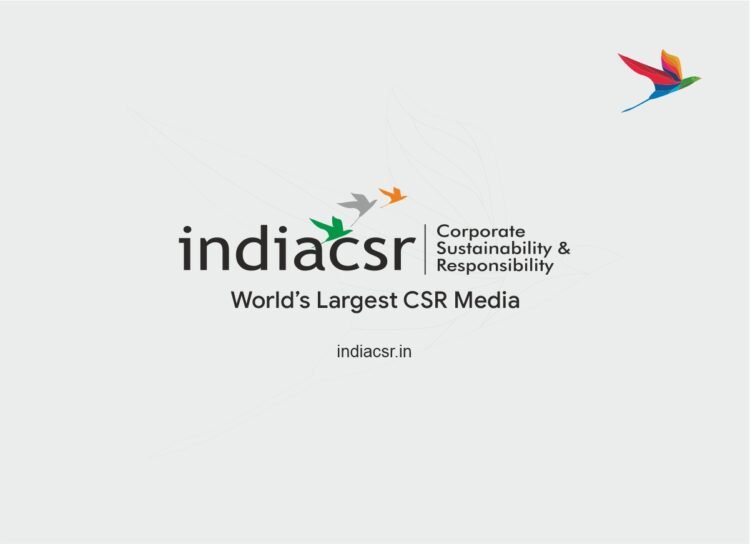The global challenges we face Nowadays such as climate change, social inequality, and public health crises, require collective action from both governments and businesses. CSR campaigns allow companies to contribute meaningfully to address these challenges, leveraging their resources, expertise, and influence to effect positive change. Moreover, as businesses operate within interconnected ecosystems, they must consider the impact of their operations on local communities, economies, and ecosystems. CSR campaigns facilitate responsible corporate citizenship by promoting sustainable business practices, fostering community development, and minimizing negative environmental impacts.
Lumina Datamatics: Lumina Datamatics, a leading global provider of content and technology solutions, announced its collaboration with Saukhyam and Anju Bist, popularly known as the “Pad-woman” of India, renowned for her pioneering efforts in producing and creating awareness about reusable sanitary pads. Recognizing the importance of menstrual hygiene and its impact on women’s lives, the collaboration involved a series of awareness workshops conducted across various colleges and institutes in Maharashtra. These workshops addressed crucial topics such as menstrual hygiene, the environmental impact of disposable sanitary products, and the advantages of embracing reusable sanitary pads. Their goal is to promote sustainable menstrual hygiene practices and foster a more informed and empowered generation.
TATA Group: The Tata Group, a prominent Indian conglomerate launched a Tata Water Mission and Its objective was to create a healthy future for 7,000 villages and 6 million people across India for access to safe and adequate drinking water and improved sanitation over the next three years. One of the key objectives of the Tata Water Mission is to provide access to safe and sustainable drinking water to communities in need, particularly in rural areas where water scarcity is a significant issue. The three key components of the mission’s programme are: water quality, water access and conservation, and sanitation and hygiene. It was launched in 2014 with a strategy planned out for 2015- 20 period with a budget of 750 million for it. From 2014 to 2017 Tata Water Mission covered 44 districts, 3,500 villages and 750,000 beneficiaries. The Water Mission has completed 1,150 water supply schemes and 75,000 toilets. Across India, the mission reached 1,500 villages, in excess of 200,000 families and 1 million people.
Infosys Foundation’s: Infosys Foundation and eVidyaloka Trust signed an MoU in January 2023 to begin the Infosys Foundation – eVidyaloka Rural Digital and STEM Education program also called SWADHYAY. Its main objective was to setup 100 digital classrooms in 100 schools so that a minimum of 10,000 students from the in-school program and 50,00,000 students across the country can benefit from free digital STEM education. 100 schools from Karnataka, Rajasthan and Madhya Pradesh got to benefit from the digital classroom and teach-through-television programs. The students from the chosen schools had access to a customized version of Infosys Springboard with pre-loaded content modules. Infosys Springboard strengthened eVidyaloka’s digital STEM education program. By providing access to quality education in Science, Mathematics, and English to students from grades 5-10, the program aims to help them learn and develop beyond barriers.
Hindustan Unilever: With Hindustan Unilever’s support, the Swayam Shikshan Prayog – a grassroots women-led community in Osmanabad, empowered women in underserved areas to transform into leaders in agriculture. They designed the Women-led Climate Resilient Farming Model to practise low-input sustainable farming techniques to become climate resilient, leading to a reduced water footprint and enhanced agro-biodiversity. Aside from creating several avenues of income generation and positive change in communities, this initiative has led to the creation of lasting infrastructure for water preservation. This year’s theme for World Water Day (March 22, 2024) is ‘Water for Peace.’ Not a surprise, considering the ever-growing need for water conservation across the globe. Hindustan Unilever constantly strives for water sustainability, and puts efforts towards reducing freshwater abstraction – a 48% reduction in usage compared to 2008. The path toward sustainability is long, but they are determined to take action across their operations and continue to advocate for water and safeguard this natural resource.
ICICI Foundation: In 2013, ICICI Foundation for Inclusive Growth launched a national-level initiative, ICICI Academy for Skills (ISA) to meet the demand for skilled labour and create sustainable livelihood opportunities for the less privileged youth. This Academy offers industry-relevant and job-oriented vocational training in 13 technical and 4 office skill courses. They now have 26 academies spread across 20 states/ Union territories that empower the youth to build a better future for the nation and themselves. They have developed a unique knowledge ecosystem, collaborating with industry leaders as knowledge partners. These knowledge partners ensure that their training programs are industry relevant. They undertake curriculum design and content development, setting up labs for practical training as well as the coaching of the trainers themselves. We have on board 11 knowledge partners who drive the content for the curriculum. They currently engage with over 1300 placement partners, 60% of them being repeat employers.
Mahindra & Mahindra: Project Hariyali was launched by the Mahindra group in 2007. Focusing on improving India’s green cover and protecting biodiversity Today, 13 years later, the Group has planted over 18 million trees and reforested the Araku Valley creating new means of livelihood for Adivasi farmers. With the help of this project, the Adivasi community is enhancing biodiversity and a healthy ecosystem. The idea was to plant six million fruit and forest trees that would help improve the Adivasi farmer families’ livelihood. The saplings provided to farmers include guava, mango, custard apple, orange, lemon, papaya, sapota, moringa, neem, bamboo and teak. Project Hariyali has skilled 1,288 master trainers, and trained 9,000 farmers in maintaining micro nurseries. There are 115 centres imparting skills to make bioinoculants. The 3 million coffee saplings raised by these efforts go towards making Araku Coffee a premium brand.







